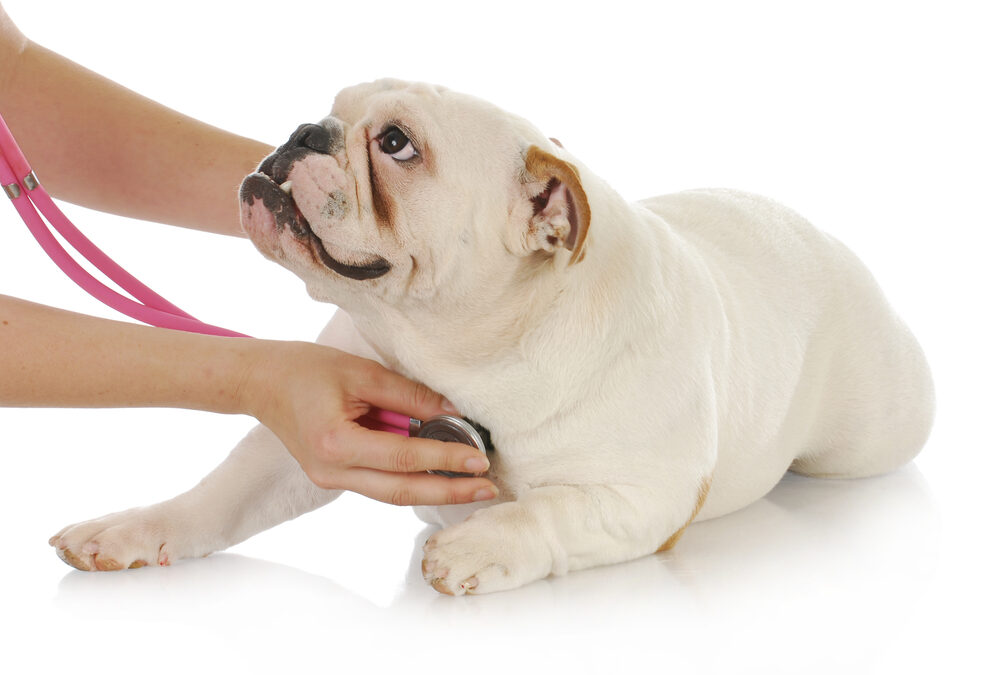Heartworm disease in dogs is a serious medical condition caused by parasitic worms known as heartworms, which can grow up to a foot in length inside a dog’s body. Once they infect a dog, they negatively affect the heart, lungs, and blood vessels of the respiratory system. They can lead to significant medical issues and, in some cases, might be fatal. Keep reading to learn more about heartworm disease in dogs and how you can keep your pups safe from these parasites.
What Is Heartworm Disease in Dogs?
Heartworms are parasitic worms that require a host environment in which to thrive. They are transmitted to dogs through mosquito bites. The mosquito bites an infected animal, sucks up baby heartworm larvae called microfilaria. The microfilaria mature and develop within the mosquito and then are deposited into the next animal they bite. The larvae then migrate through the tissue and blood system of the host until they reach the pulmonary artery, where they grow into adult heartworms and begin to produce their own microfilaria. This cycle takes about 6 months. Unfortunately, dogs make the ideal host for a heartworm.
Adult heartworms are long and invasive. Without intervention, a dog could unknowingly have hundreds of heartworms taking up residence inside. Even one worm can cause immense damage to the heart and arteries in a very short amount of time. The heartworms attack the heart, lungs, and blood vessels. This will lead to respiratory and heart damage that could have life-long consequences. Without veterinary intervention, it will eventually become fatal.
Signs of Heartworm Disease in Dogs
Although many dogs do not display symptoms upon infection, there are a few signs that can alert you that something is wrong. These include:
- A persistent cough
- Exhaustion/lack of desire for normal activities like exercise
- Significant weight loss
- A swollen belly
- Trouble breathing
If you notice any of the above, it is important to make an appointment with your vet as soon as possible. The best chance for a positive outcome for a dog infected with heartworm disease is early treatment.
Following a Positive Heartworm Test
If your dog tests positive for heartworm disease, the veterinarian will do the following:
- Get the dog stable: Before the actual heartworm treatment can begin, the veterinarian must make sure your dog is stable. Your veterinarians will dispense oral medications as part of the pretreatment protocol. They will do labwork and xrays to assess the amount of damage already done by the disease.
- Treat the disease: Treatment is a series of three injections that can be uncomfortable. The first injection is given after a month of pretreatment meds at home, the second and third are given a month later on two consecutive days. Your veterinarian will closely monitor for any reaction following each injection.
- Retest: About 6 and 12 months after the final treatment, your vet will retest your dog to make sure that treatment was successful. Sometimes it is necessary to repeat treatment.
- Advise you to keep your pet sedentary: Being too active with heartworm disease can cause serious heart or lung problems for your pup because the worms die off too fast and can cause an embolism. This can be fatal.
Heartworm Prevention
The best way to protect your dog from heartworm disease is to prevent it altogether. Preventing heartworm disease in dogs is much less expensive than treating it. Treatment is also very painful for the dogs, and even though we eliminate the adult worms, there is still damage to the arteries that may be irreversible.
Talk to your veterinarian about monthly heartworm prevention. Heartworm preventives target the larvae before they can migrate to the artery and grow into adults and damage your dog’s health. It is important to scrupulously maintain this monthly prevention year-round because mosquitoes can be found any time of the year.
There are also heartworm prevention injections that last 6 or 12 months and are very effective at preventing heartworm disease if you have difficulty remembering to give medications monthly.
At Union Lake Veterinary Hospital, we know that preventive medicine is an integral element of pet health and wellness. From heartworm prevention to wellness care, we make it easy to get your pets the lifelong care they need. To learn more, please call (248) 363-1508.

